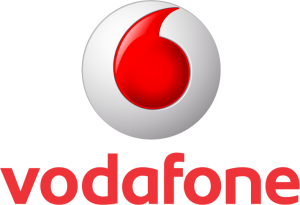 The Vodafone Chair Mobile Communications Systems at TUD (vodafone-chair.org) was founded in September 1994 by an endowment of Mannesmann Mobilfunk GmbH, Düsseldorf, Germany. After the acquisition of Mannesmann Mobilfunk by Vodafone Group Ltd. in 2000, the chair changed its name to Vodafone Chair.
The Vodafone Chair Mobile Communications Systems at TUD (vodafone-chair.org) was founded in September 1994 by an endowment of Mannesmann Mobilfunk GmbH, Düsseldorf, Germany. After the acquisition of Mannesmann Mobilfunk by Vodafone Group Ltd. in 2000, the chair changed its name to Vodafone Chair.
Objective
The chair carries out leading-edge research which adds to the advancement of wireless communications technology, by working on industry relevant problems related to next generation wireless systems. Thorough fundamental research as well as close industry cooperation are key to the success of our projects. Wireless and mobile communications is mainly driven by three branches of industry, namely
- network operators,
- equipment manufacturers, and
- semiconductor manufacturers.
As each branch has different view on problems and solutions, it is highly important that each of these different viewpoints is addressed in the research work. This ensures that the results have practical relevance and significance. The Vodafone Chair therefore welcomes and maintains industry contacts and partnerships to meet this objective.
The chair’s current focus lies on physical layer research, with a special emphasis on capacity enhancements of wireless radio networks, advanced coding techniques, and IC implementation architectures. Of particular interest are problems and solutions which are found in a trade-off between these focus areas.
Chair projects shall also enable researchers to start-up their own company after obtaining their degree, based on the work performed at the chair.
Approach
The goal of research lies in providing solutions for challenges in the design of next generation mobile communications systems.
The topics addressed by the system level group range from network deployment, sectorization and power control, to strategies for efficient coordinated multi-point (CoMP) communication and scheduling. New concepts and algorithms developed in this group will improve spectrum and energy efficiency as well as network capacities for radio transmission.
The algorithms and coding group specializes in study of the impairments of RF-hardware and the corresponding baseband compensation algorithms, as well as novel error correcting coding techniques.
The hardware and tools group focuses on architectures for modem signal processing. Ongoing research comprises heterogeneous multi-processor SoCs, including programming paradigms, load distribution strategies, system interconnect and programmable system components. In addition to this, the design methodology and tool framework dedicated to design, implementation and exploration of low-power, flexible, high-performance SoCs is developed.
By carrying out high-end research in the fields mentioned above and by close interaction among the groups, the chair closes the gap between baseband algorithms and hardware (RF and IC) implementation issues.
Advanced software engineering tools together with highly developed methodologies are enabling capabilities to realize integrated solutions for our partners.
Startups
- Systemonic AG, now NXP, founded 1999 and successfully acquired by Philips Semiconductors in 2002. Product: Broadcast chipsets.
- Radioplan GmbH, now Actix Ltd., founded 2000 and acquired by Actix in 2006. Product: Network planning and optimization tools for cellular systems.
- Signalion GmbH, founded 2003, since 2012 a National Instruments company: Product: test and measurement equipment for LTE radio network infrastructure.
- In-Circuit GmbH, founded 2004, is an outsourcing partner for DSP systems on PCB level.
- Dresden Silicon GmbH, founded 2005, acquired by Signalion in 2007.
- Freedelity GmbH, founded 2007, offers wireless communications implementation expertise.
- Radioopt GmbH, founded 2008, delivers measurement software products for cellular KPI analysis.
- Blue Wonder Communications GmbH, founded 2008, acquired by Intel Mobile Communications in 2010, delivers LTE chip sets for cellular handsets.
- InRadios GmbH, founded 2009, provides smart SatCom modem solutions.
- Startbahn Venture Fund, founded 2011, new private VC for technical startups.
- Exelonix GmbH, founded in 2013, offers tablet- based ambient assisted living solutions.
- Airrays GmbH, founded in 2013, offers Small cell hardware technology.
Team
- 1 Vodafone Chair Professor
- 8 Senior Scientists
- 5 PostDocs
- 28 PhD Students
- 3 Program Managers
- 2 Secretaries
- 5 Sys/Lab-Admin
- 4 HTSB Members
- 8 cfaed Staff
- 15+ Masters Students
Additional information is accessible at vodafone-chair.org.
